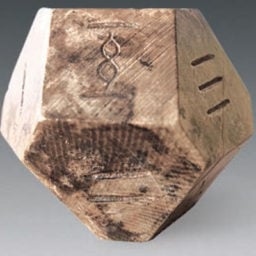@Thirza Fallen @JJ50
Isn't it interesting that when archaeologists dig in the earth and find writing on clay, and other materials, which mention persons and their activities, people are quick to say, "Hey there was this man named So-and-so, that did XYZ", and no one ever questions whether the man really existed, or if what was written was true?
Yet, we dig in the same earth, and find ancient tattered material, written on, and we question the existence of the characters, and events, and deny that what was written was true.
That's interesting.
What's the difference between this
, and this,
It seems clear, that this is nothing more than disbelief, and denial - believing what one want to, and denying and criticizing what one does not believe.
To me, whether archaeologist dig up the barrel which was filled with water, that turned to wine, or find the footprints on the water, where Jesus walked, makes no difference to the Christian. The Bible is history written down. We need no other source to confirm it, although that will happen - as in the case of
all the evidence found to confirm its reliability - the writings themselves give solid confirmation.
For example, we know that the Hebrew writings are quite ancient, and we know that Paul's writings, as well as the Gospels, are ancient as well, though more recent than the Hebrew.
What we see written in the Hebrew, is confirmed by the Greek. Much of what is written are actual fulfillment of earlier writings - too much to go into here.
However, this is all the confirmation we need, as well as the fact that it is established by the lives of actual people living from the first century AD, to today.
So those who are asking for outside evidence are really not being reasonable, because when outside evidence confirms a score of characters, and events, they will ask for confirmation of others. When they get two score, they will ask for confirmation of more. They will never be satisfied.
Yet, ironically, they are satisfied with a coffin full of fossils to pick at, and claim that evolution happened.
When asked where are the hundred of thousands we expect to find... "Oh, the fossil record is incomplete. Oh, we won't be able to find many of the fossils, because..."
People believe what they want.



